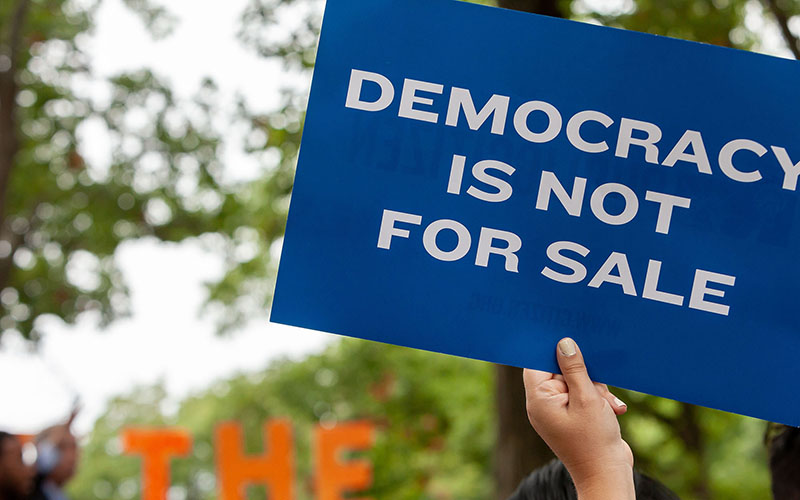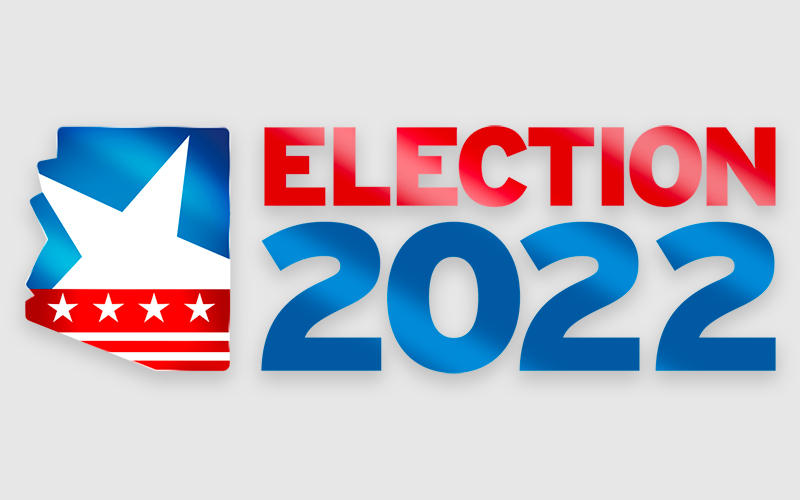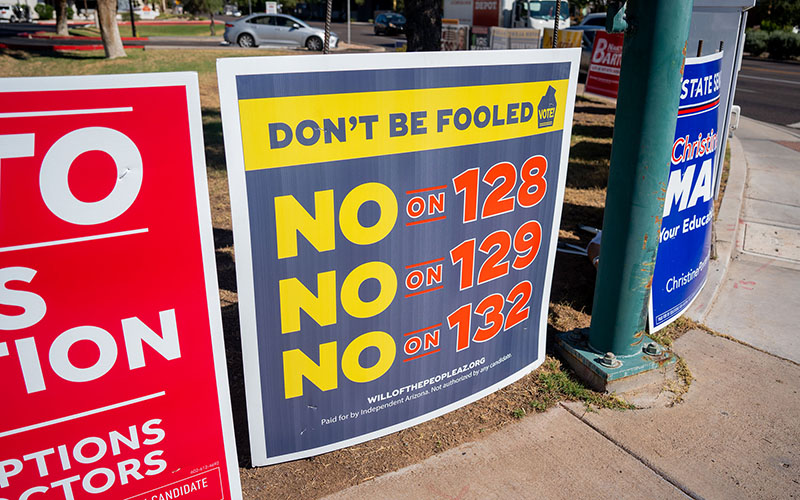
A protester holds a sign at the U.S. Capitol in this 2021 file photo. Supporters of Proposition 211 on Arizona’s ballot this fall say it will help rein in money in politics by toughening reporting requirements for groups and individuals who fund independent campaign organizations. (Photo by Allison Bailey/Shutterstock)
WASHINGTON – Give $50 to a political candidate and, under the current law in Arizona, your name, home address and employer must be reported to the secretary of state’s office.
Give $5,000 – or more – to an independent organization that is working to support or oppose that same candidate and you can do so in secret.
That doesn’t make sense to Terry Goddard.
That’s why Goddard, a former Arizona attorney general, is backing Proposition 211, the “Voters Right to Know Act” that would require major funders of independent advertising campaigns to identify themselves and name their donors.
“Why is one small group of big donors and corporations given a pass?” Goddard asked. “I don’t think it’s a level playing field and we ought to have the same rules for everybody.”
But critics say that instead of leveling the playing field, Proposition 211 would silence the voice of the people it claims to protect. Scot Mussi, president of the Arizona Free Enterprise Club, said the proposal violates the free speech right to support issues without fear of retaliation.
“We think that Prop 211 isn’t about trying to provide information to voters,” said Mussi. Instead, he said, it will result in information “that can be used to target, harass and intimidate people that support various private organizations simply because of the causes and issues they want to support.”
Proposition 211 would amend the state’s campaign finance law to publicize what Goddard calls the millions in “dark money” spending on political ads by groups seeking to influence voters without having to identify themselves.
The proposal would require that any independent organization – whether an individual or a group – that spends $50,000 or more for or against a statewide candidate in an election cycle to identify the original source of any donation over $5,000. The disclosure requirement would be triggered at $25,000 for spending on campaigns that are not statewide, such as school board or city council races. The reporting requirement would apply to spending on state and local ballot measures as well.
The threshold amounts would not have to be spent all in one place: If an organization spent $5,000 on 11 candidates, for example, they would meet the disclosure requirement. It would only apply to independent campaigns, which are not allowed to act in coordination with a candidate, funding support or attack ads for candidates.
It’s not the first time critics of dark money have tried to pass such a proposal. A 2018 effort failed to get enough signatures to put the Right to Know Source of Campaign Contributions Initiative on the ballot, and a second effort in 2020 was derailed by COVID-19.
But that did not deter supporters of the proposal. Goddard said Proposition 211 is essential for restoring voters’ confidence through transparency to pierce the cloak of secrecy that lets people and organizations engage in negative and misleading political advertisements.
“You have no idea who actually paid for that ad,” Goddard said. “You know that somebody is trying to whisper in your ear to go one way or the other, but you have no idea who it is … what their interests might be.”
That was echoed by Pinny Sheoran, president of the League of Women Voters of Arizona, who said voters need to know if the candidate they elect is going to be serving the voters or the special interest groups paying for support or attack ads.
But critics argue that there are other special interest groups exempted from the proposal, including the media and big tech.
“Ironic that all those exempted favor one party over the other,” Cathi Herrod, president of Center for Arizona Policy, wrote in a statement opposing Proposition 211.
Mussi echoed Herrod’s sentiment, adding “if this is transparency, then it should be applied evenly across the board and shouldn’t pick who it’s going to target and not target, which is what Proposition 211 does.”
Mussi and Herrod also claim that labor unions would be exempt from the requirement – an argument Goddard calls absurd and deceptive. The initiative specifically states that membership organizations – which Goddard said would apply to labor unions – are considered an original source.
Goddard said that without the accountability that Proposition 211 would impose, “The individual (who is) spending the money buying the advertisements, who’s a dark-money operative, that person has absolutely no obligation to the truth, or to play fair.”
He adds that if individuals had been required in previous elections to put their names at the bottom of attack ads, the ads likely would not have run.
“If you tell people, corporations, political advertisers that they have to put their name at the bottom, it’s going to change the whole tenor,” said Goddard.


